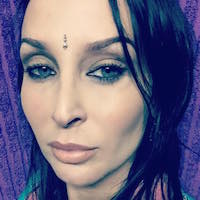I met a young woman in the public health clinic today in India—a Muslim girl wearing black hijab and full black dress.
She initiated a conversation with me by asking me what country I was from.
I politely responded “America.”
She smiled and stated, “nice country” and then warmly added, “welcome.”
She went on to explain that she was getting the yellow fever vaccination so she could go see her husband who is in Africa. She was accompanied by her husband’s brother at the clinic, who was trying to convince her that the shot wasn’t too painful. He told me how scared she was of getting the shot and how she had been avoiding it for weeks.
I, too, was getting the yellow fever vaccine to enter Africa, so I told her I would go first.
She had such a kind, beautiful face. Her energy was that of an innocent child. When she welcomed me as a guest in her country, I couldn’t help but feel ashamed. Ashamed she wouldn’t receive the same kind words if she entered my country in her modest clothes.
I felt a dull ache in the pit of my stomach as I recalled the words I recently observed in the media, specifically those of ignorance, hate and fear.
The conversation remained surface, yet I had this undeniable urge to apologize to her, to her people actually, from my people.
I wanted to tell her that a lot, if not most of us, are able to see her as more than what she wears on the outside.
That it is not her religion people fear, but instead the lies our own government leads its citizens to believe about her religion.
I wanted to ask her for her forgiveness, for my people who are coming from a place of fear, not love.
When I stepped out of the vaccination room she jumped up and screeched, “Did it hurt?”
It really didn’t hurt, not as much as my heart anyway.
That was not the first time I have shared conversations with muslim women.
Her kind demeanor was not just because we were in India. I’ve experienced these interactions in Qatar and Saudi, as well with women in full burkas.
When these women are alone with you in the bathroom or other secluded places, they will show your their face and hair, and smile.
I have had women sit next to me and explain things to me about their culture so that I would not stereotype them, just like I don’t want them to stereotype me.
These women are gentle, beautiful creatures and are made from the same magical, divine feminine energy from which we are made. They share the same dreams and fears as us. They are us.
As we parted, I gave her a hug. It was a hug from me to her, from my people to her people. She hugged me tighter and longer than I was expecting.
There were no words, just an understanding between two women, who’s energy communicated louder than words ever could. It was in that moment I realized, I didn’t need to apologize.
She had already forgiven me.
Author: Meredith Marchette
Image: Debashis Biswas / Unsplash & Elephant Insta
Editor: Sara Kärpänen






Read 26 comments and reply